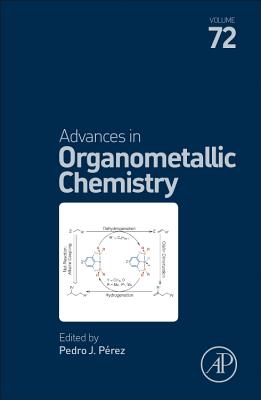Inorganic Chemistry, 5/e (PIE-Paperback)
暫譯: 無機化學,第五版 (PIE-平裝本)
Gary Miessler , Paul Fischer , Donald Tarr
- 出版商: Pearson FT Press
- 出版日期: 2014-01-01
- 定價: $1,420
- 售價: 9.8 折 $1,392
- 語言: 英文
- 頁數: 680
- ISBN: 129202075X
- ISBN-13: 9781292020754
-
相關分類:
化學 Chemistry
下單後立即進貨 (約5~7天)
買這商品的人也買了...
-
 Fourier Analysis : An Introduction (Princeton Lectures in Analysis, No. 1) (Hardcover)
Fourier Analysis : An Introduction (Princeton Lectures in Analysis, No. 1) (Hardcover)$1,580$1,548 -
 Functional Analysis: Introduction to Further Topics in Analysis (Princeton Lectures in Analysis, No. 4) (Hardcover)
Functional Analysis: Introduction to Further Topics in Analysis (Princeton Lectures in Analysis, No. 4) (Hardcover)$1,580$1,548 -
流體力學 (Hibbeler: Fluid Mechanics)
$680$666 -
 流體力學 (Potter : Mechanics of Fluids, 4/e)(SI版)
流體力學 (Potter : Mechanics of Fluids, 4/e)(SI版)$680$666 -
 流體力學 (Cengel, 3/e) (授權經銷版)
流體力學 (Cengel, 3/e) (授權經銷版)$950$903 -
 Transition Metals in the Synthesis of Complex Organic Molecules, 3/e (Hardcover)
Transition Metals in the Synthesis of Complex Organic Molecules, 3/e (Hardcover)$1,860$1,823 -
 Introduction to Elementary Particles, 2/e (Paperback)
Introduction to Elementary Particles, 2/e (Paperback)$1,950$1,911 -
 $1,715Introduction to Quantum Mechanics, 3/e (Hardcover)
$1,715Introduction to Quantum Mechanics, 3/e (Hardcover) -
 C 程式設計藝術, 8/e (國際版)(附部分內容光碟)(C: How to Program, 8/e)
C 程式設計藝術, 8/e (國際版)(附部分內容光碟)(C: How to Program, 8/e)$840$756 -
 Principles of Instrumental Analysis, 7/e (Paperback)【內含Access Code,經刮除不受退】
Principles of Instrumental Analysis, 7/e (Paperback)【內含Access Code,經刮除不受退】$1,480$1,450 -
 計算機概論, 4/e (Forouzan: Foundations of Computer Science, 4/e)
計算機概論, 4/e (Forouzan: Foundations of Computer Science, 4/e)$580$568 -
 Macroeconomics, 10/e (Hardcover)
Macroeconomics, 10/e (Hardcover)$1,750$1,715 -
 Chemistry: An Atoms First Approach, 3/e (AE-Paperback)
Chemistry: An Atoms First Approach, 3/e (AE-Paperback)$1,580$1,548 -
 $1,352Actuarial Mathematics for Life Contingent Risks, 3/e (Hardcover)
$1,352Actuarial Mathematics for Life Contingent Risks, 3/e (Hardcover) -
 Understanding Process Dynamics and Control
Understanding Process Dynamics and Control$4,670$4,437 -
 $1,617Introduction to Materials Chemistry, 2/e (Hardcover)
$1,617Introduction to Materials Chemistry, 2/e (Hardcover) -
 Solid State Physics (Paperback)
Solid State Physics (Paperback)$1,980$1,940 -
 Organic Chemistry, 10/e (IE-Paperback)
Organic Chemistry, 10/e (IE-Paperback)$1,480$1,450 -
 Halliday & Resnick`s Principles of Physics, Extended, 12/e (IA)(Paperback)
Halliday & Resnick`s Principles of Physics, Extended, 12/e (IA)(Paperback)$1,640$1,607 -
 Foundations of Computer Science, 5/e (Paperback)
Foundations of Computer Science, 5/e (Paperback)$1,360$1,333 -
 Water and Wastewater Engineering, Volume 1: Hydraulics, Hydrology and Management
Water and Wastewater Engineering, Volume 1: Hydraulics, Hydrology and Management$5,800$5,510 -
 Atkins` Physical Chemistry, 12/e (Paperback)【內含Access Code,經刮除不受退】
Atkins` Physical Chemistry, 12/e (Paperback)【內含Access Code,經刮除不受退】$2,800$2,744 -
 計算機概論, 5/e (Forouzan: Foundations of Computer Science, 5/e)
計算機概論, 5/e (Forouzan: Foundations of Computer Science, 5/e)$640$627
商品描述
●Excellent, balanced coverage of core principles and theory enables students to get through this material in a one-semester course while special topic coverage, such as organometallic and solid-state chemistry, allows instructors flexibility in covering topics
●The strong presentation of atomic theory and emphasis on physical chemistry give students a firm understanding of the theoretical basis of inorganic chemistry
●Many problems at the end of each chapter, including some from the recent literature, allow instructors to choose the number and type of problems assigned
●Worked examples throughout demonstrate step-by-step how problems are solved and Exercises provide ample opportunity to practice the concepts learned
●Reflects topics of recent interest, such as:
- receptor-guest complexes (Chapter 6)
- quantum dots (Chapter 7)
- graphene and nanotubes (Chapter 8)
- metal-organic frameworks (Chapter 9)
- carbide and cumulene ligands (Chapter 13)
- olefin metathesis (Chapter 14)
- quintuple bonds (Chapter 15)
●Expanded sections on VSEPR and the ligand close packing model in Chapter 3 provide a wider variety of examples and group electronegativity has been added.
●The atomic weights of the elements provided in the periodic table inside the front cover include the most recent IUPAC recommendations. The values of physical constants inside the rear cover have been revised to use the most recent values cited on the NIST web site.
●Added coverage of oxidation-reduction reactions helps students understand main group and transition metal chemistry
●Web-based problems encourage the use of internet resources to solve problems and Problems using software for molecular orbital calculations allow students to calculate and observe shapes and energies of molecular orbitals
商品描述(中文翻譯)
●優秀且平衡的核心原則與理論涵蓋,使學生能在一學期的課程中掌握這些材料,而特殊主題的涵蓋,如有機金屬化學和固態化學,則讓教師在授課主題上有更大的靈活性。
●對原子理論的強有力呈現及對物理化學的重視,使學生對無機化學的理論基礎有堅實的理解。
●每章結尾有許多問題,包括一些來自近期文獻的問題,讓教師可以選擇分配的問題數量和類型。
●全書的範例展示了問題解決的逐步過程,練習題提供了充分的機會來練習所學的概念。
●反映近期感興趣的主題,例如:
- 受體-客體複合物(第6章)
- 量子點(第7章)
- 石墨烯和奈米管(第8章)
- 金屬有機框架(第9章)
- 碳化物和累烯配體(第13章)
- 烯烴重排(第14章)
- 五重鍵(第15章)
●第3章擴展了VSEPR和配體緊密堆積模型的部分,提供了更多樣的範例,並新增了群電負性。
●封面內的元素週期表中提供的原子量包含最新的IUPAC建議。封底內的物理常數值已修訂為使用NIST網站上引用的最新值。
●新增的氧化還原反應涵蓋幫助學生理解主族和過渡金屬化學。
●基於網路的問題鼓勵使用網際網路資源來解決問題,使用軟體進行分子軌道計算的問題讓學生能計算並觀察分子軌道的形狀和能量。
目錄大綱
1. Introduction to Inorganic Chemistry.
2. Atomic Structure.
3. Simple Bonding Theory.
4. Symmetry and Group Theory.
5. Molecular Orbitals.
6. Acid-Base and Donor-Acceptor Chemistry.
7. The Crystalline Solid State.
8. Chemistry of the Main Group Elements.
9. Coordination Chemistry I: Structures and Isomers.
10. Coordination Chemistry II: Bonding.
11. Coordination Chemistry III: Electronic Spectra.
12. Coordination Chemistry IV: Reactions and Mechanisms.
13. Organometallic Chemistry.
14. Organometallic Reactions and Catalysis.
Appendixes: Character Tables
目錄大綱(中文翻譯)
1. Introduction to Inorganic Chemistry.
2. Atomic Structure.
3. Simple Bonding Theory.
4. Symmetry and Group Theory.
5. Molecular Orbitals.
6. Acid-Base and Donor-Acceptor Chemistry.
7. The Crystalline Solid State.
8. Chemistry of the Main Group Elements.
9. Coordination Chemistry I: Structures and Isomers.
10. Coordination Chemistry II: Bonding.
11. Coordination Chemistry III: Electronic Spectra.
12. Coordination Chemistry IV: Reactions and Mechanisms.
13. Organometallic Chemistry.
14. Organometallic Reactions and Catalysis.
Appendixes: Character Tables











